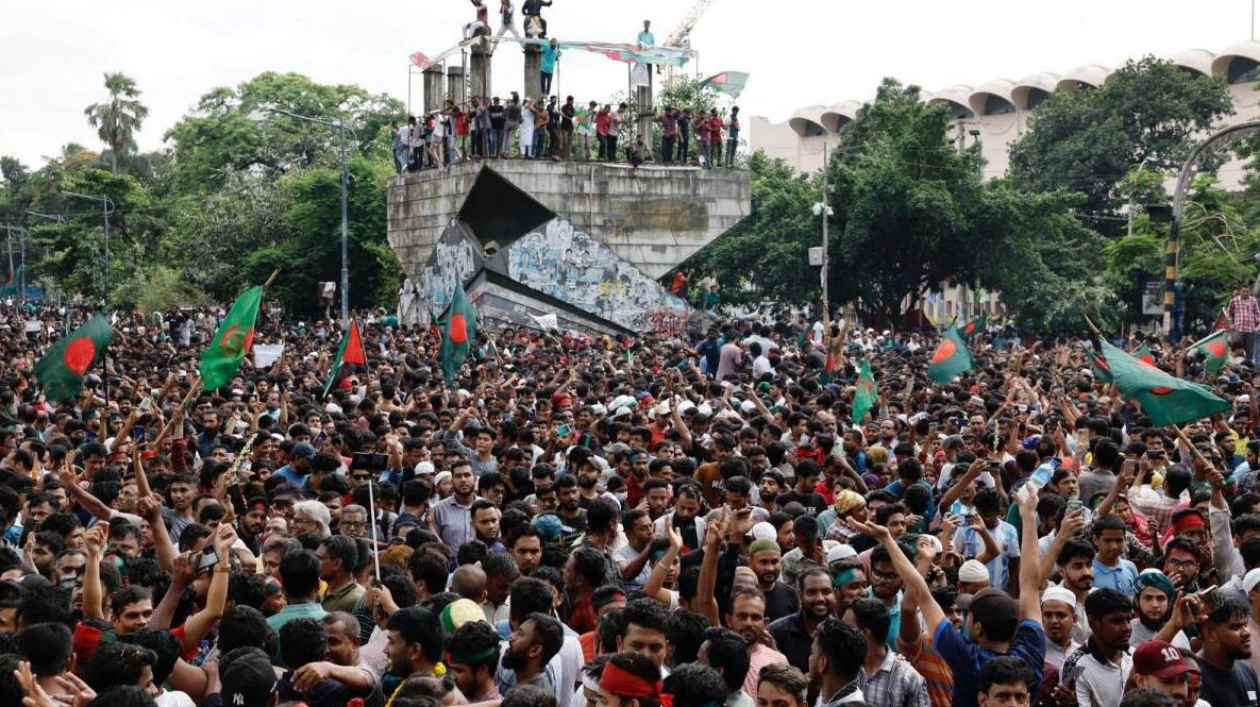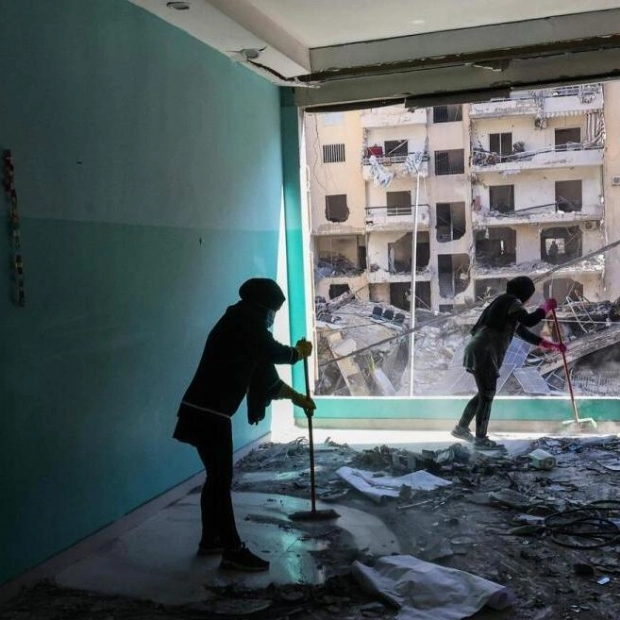On Monday, Bangladeshi Prime Minister Sheikh Hasina's 15-year tenure concluded as she escaped the country following weeks of fatal protests, with the military declaring its intention to establish an interim government.
Hasina had attempted since early July to suppress nationwide demonstrations against her administration, but she ultimately fled after a violent day of chaos on Sunday that resulted in nearly 100 fatalities. A source close to the leader informed AFP that the 76-year-old Hasina departed via helicopter after protesters had breached her palace in Dhaka. The source revealed that she initially left by car but was subsequently airlifted out, without specifying her destination.
On Monday morning, jubilant crowds waved flags and danced atop a tank in the streets before hundreds managed to breach the gates of Hasina's official residence. Bangladesh's Channel 24 aired footage of the celebratory crowd entering the compound, looting items such as furniture and books, and lounging on beds. Some even destroyed a statue of Hasina's father, Sheikh Mujibur Rahman, a revered figure in the country's independence.
Bangladesh's army chief, General Waker-Uz-Zaman, announced on state television that Hasina had resigned and that the military would form an interim government. He expressed hope that his address would lead to an improvement in the situation, emphasizing the need to end the violence that had inflicted significant damage on the economy and claimed many lives.
General Waker-Uz-Zaman, a career infantryman, stated his intention to consult with the president to form a caretaker government in Bangladesh, a nation of approximately 170 million people. It remained unclear whether he would assume leadership. He mentioned holding discussions with major opposition parties and civil society members, excluding Hasina's Awami League.
Michael Kugelman, director of the South Asia Institute at the Washington-based Wilson Center, cautioned that Hasina's exit would create a substantial power vacuum. He noted that a peaceful transition, with an interim government in place until elections, would pose modest stability risks and limited consequences. However, he warned that a violent transition or a period of uncertainty could lead to further destabilization and issues both within and outside the country.
Hasina's son, Sajeeb Wazed Joy, who is based in the US, urged security forces to prevent any unelected government from taking power, stating it was their duty. Security forces had consistently supported Hasina's government throughout the unrest, which initially erupted over civil service job quotas and escalated into broader demands for her resignation. Sunday's violence marked the deadliest day of the protests, with at least 94 people killed, including 14 police officers.
Since the protests began in early July, the total death toll has reached at least 300, according to an AFP tally based on police, government officials, and hospital doctors. The military had previously declared an emergency in January 2007, following widespread political unrest, and installed a military-backed caretaker government for two years. Hasina subsequently governed Bangladesh from 2009 and secured her fourth consecutive term in January after an election without genuine opposition. Her administration faced accusations from rights groups of abusing state institutions to consolidate power and suppress dissent, including through extrajudicial killings of opposition activists.
The demonstrations started over the reinstatement of a quota system reserving over half of government jobs for specific groups. Despite the scheme being scaled back by Bangladesh's top court, the protests intensified. On Monday morning, soldiers and police barricaded routes to Hasina's office with armored vehicles and barbed wire, but large crowds overwhelmed the defenses, tearing down barriers. The Business Standard newspaper estimated up to 400,000 protesters were on the streets, though this figure could not be independently verified.
Asif Mahmud, a key leader in the nationwide civil disobedience campaign, declared it was time for the final protest. In several instances, soldiers and police refrained from intervening during Sunday's protests, unlike in previous weeks when rallies often ended in deadly crackdowns. A respected former army chief demanded the government immediately withdraw troops and permit protests, issuing a significant rebuke to Hasina. Ex-army chief General Ikbal Karim Bhuiyan emphasized that those responsible for the extreme suffering of the country's people must be held accountable.






